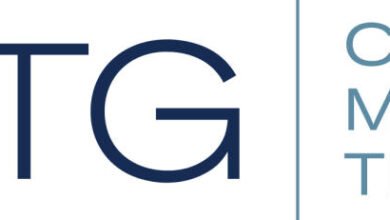Nearly three-quarters of second charge mortgage brokers charge over £2,000 in fees


Around 70% of second charges sold by brokers were subject to fees of £2,000 or more in 2023, a rise on the prior year, fuelled by Consumer Duty, Mortgage Solutions understands.
According to figures obtained by Mortgage Solutions following a Freedom of Information (FOI) request sent to the Financial Conduct Authority (FCA), in 2022, around 67% of second charge mortgages sold by brokers were subject to a £2,000-plus fee.
The figures show that the proportion of brokers charging fees of more than £2,000 for second charge business has grown since 2019, when 59% of business was in this fee bracket.
There has also been growth in the £1,000-1,499 and £1,500-1,999 fee brackets, which account for 11% and 14% respectively. This is up from 10% and 13% apiece.
Fee-free advice for second charges nearly halved year-on-year (YOY) from 5% in 2022 to 2% in 2023, while those within the £500-999 segment decreased from around 2% to 0.5% YOY.
Second charge advice in the £500-999 fee bracket decreased from around 4% in 2022 to 3% in 2023.
A follow-up FOI request found that the average second charge broker came to £2,831.60 in 2023, a 6% rise on 2022 and around 15% up on 2021 figures.
Second charge firms have to ‘justify’ not ‘reduce’ fees
Lucy Waters, managing director of specialist broker Aria Finance, said a key focus of Consumer Duty was fair value, so it was a “little surprising” to see fees increase, especially as the FCA had “taken such a keen interest in the second charge market”.
She continued: “However, it’s worth noting that while the FCA is [taking] an interest in the fees second charge firms are charging, it doesn’t necessarily mean they are under pressure to reduce them, only justify them.
“I think what we are seeing here is that, having gone through the process of assessing whether their service is fair value, a lot of firms have come to the realisation that perhaps they were in fact undervaluing the service they provided.”
Waters said there could be several reasons for increasing fees; for instance, some companies have kept their fees low to drive volumes, but that approach may be “unsustainable” due to the market slowdown.
She added that another reason could be that, for some firms, it was the “time they have properly kicked the tyres on their offering” and realised they were not charging enough to generate a profit.
Waters continued: “As with most regulation, there is rarely a right answer; everyone’s definition of ‘fair value’ will vary greatly. Therefore, for those firms that have increased their fees, it’s down to them to make a convincing enough case for any increase they implement.
“As a regulated business, you must always look to review and maintain an honest and fair fee structure, and ensure that you can justify your position.”
Second charge fee increases ‘unsurprising’
Paul McGonigle, Positive Lending’s CEO, said the fee increases were “unsurprising”, as many second charge brokers only offered that product, and the cost of living may have forced them to increase fees to remain profitable or negate a loss.
He said the figures would represent where fees were for the majority of the year, but as Consumer Duty went live in August, it may not be a fully accurate picture.
McGonigle noted that there was also a larger share of second charge business being written by the business-to-consumer (B2C) market in 2023, and they charged higher fees than business-to-business (B2B) brokers.
He said that, although the average loan has reduced due to the cost-of-living crisis, meaning revenues reduce, Positive Lending still reduced fees overall in this market as part of its Consumer Duty piece.
“I would hope that 2024 figures would show a reduced fee model in the market, but again that depends on where the consumer is transacting their business. Approaching a broker would, in my opinion, offer the client a more affordable route to this market via the B2B channel, which is highly competitive at present. Brokers are waking up to the idea that the product offers value, and selecting the right partner for their consumer is paramount to [attracting] a good deal.”
Barney Drake, chief executive officer of Y3S Loans, said the challenges of Covid, rising interest rates and inflation meant it was unsurprising that second charge fees had climbed steadily over the last five years and the bulk of fees were over £2,000.
He continued: “Without compromising quality or customer outcome, our industry has increased fees to meet such rising costs, and whilst under the spotlight of the Consumer Duty, our focus needs to be on evidencing fair value.
“For my business, the greatest cost is the time we spend working our customers’ applications, and so in light of the Consumer Duty, we have replaced our percentage-based broker fee structure to a fixed price for each service required. Therefore, the more complex the application, the more time required, the greater our fee. And as customers’ circumstances are becoming more and more diverse, this requires more time, so the rise in fees is of little surprise to me.”
Second charges ‘often complex’ and need ‘great deal of work’
Liz Syms, CEO of Connect Mortgages, said fees for second charge mortgages have been “scrutinised” as a result of Consumer Duty to “ensure that the customers are receiving good value”.
However, she said that second charges were “often complex”, and a “great deal of work” was undertaken by the broker. She added that loan sizes were also considerably small, with the average normally around £40,000-50,000.
Syms said: “There are many reasons why a second charge loan would be the most appropriate product for a customer, and often these reasons can be complex and time-consuming for the broker. A second charge loan is a specialist lending solution.”
An example could be consolidation of unsecured debts into a secured loan, meaning the adviser would have to ensure the customer is in a better short- and long-term financial position. She added that there is a “regulatory risk” with the lender, and securing full details for each debt was “labour-intensive”.
Another example is borrowing for business purposes, which means understanding the business and ensuring the customer fully understands the risk when securing business debts on their home.
Syms said that, if a second charge was being considered as an alternative to a remortgage, the adviser would have to do “additional work” to compare the two and fully explain the options to the client.
“Consumer Duty no doubt will have caused advisers to look again at their fee structure and its value. Therefore, whilst the percentage of fees seems to be greater when above £999 in comparison to previous years, the amount of work undertaken has also increased, but the most important aspect is that the customer received good value for the fee [they are] being charged. Consumer Duty is there to ensure just that,” she said.
This is part of a series on broker fees, with further deep dives into regulated mortgages, lifetime mortgages, and average broker fees coming up.
Anna is currently the deputy editor for Mortgage Solutions and editor for Specialist Lending Solutions. She has worked as a journalist since 2019, having secured her Gold Standard NCTJ diploma from News Associates in a fast-track six-month course.
She started her career as a report at specialist publication The Insurance Insider covering a wide range of areas before joining Mortgage Solutions and Specialist Lending Solutions in 2021.
In her role, she helps put together and structure the news agenda for the day and writes up press releases, reports, interviews, analyses and exclusives across both titles. She also commissions blogs for Specialist Lending Solutions and hosts online masterclasses and in-person events across the business.
She has been shortlisted for three journalism awards, which include BIBA Journalist and Media Awards Scoop of Year Award in 2020, Headline Money Mortgage Journalist of the Year Award (B2B) in 2022 and 2023.
Prior to being a journalist, Anna worked in ecommerce across Snow + Rock, Cycle Surgery and Runners Need websites, and before that worked at specialist financial PR firm Rostrum.
In her spare time, Anna enjoys reading, seeing live music, and cooking for friends and family. When she gets a chance, she also enjoys hiking, skiing and indoor rock climbing.






